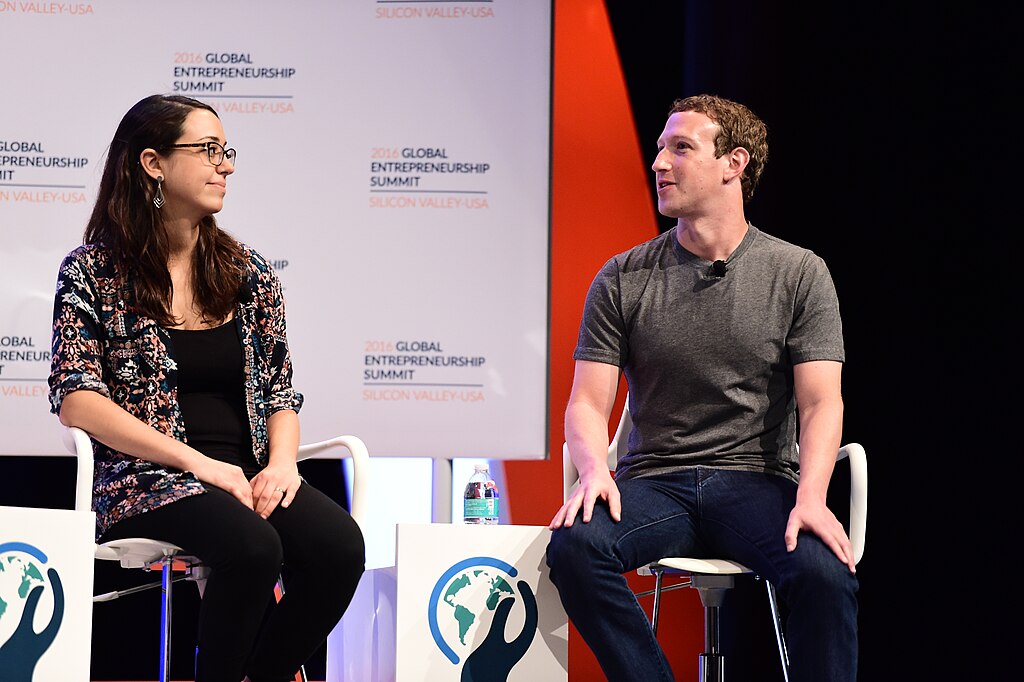Journalist Alex Berenson has announced plans to amend his ongoing lawsuit against President Joe Biden and top executives at Pfizer, following a significant development that could reshape the legal battle. Berenson's decision comes in response to recent statements by Meta CEO Mark Zuckerberg, who revealed that his company, Facebook, had been pressured by the Biden-Harris administration to censor content, particularly regarding COVID-19.
Zuckerberg’s admission has sent shockwaves through political and legal circles, raising new questions about the extent of government involvement in social media content moderation during the pandemic. Berenson, who has been a vocal critic of the government's COVID-19 policies and has faced censorship himself, sees this revelation as a critical piece of evidence in his case. He argues that it supports his claims that there was a coordinated effort to suppress dissenting voices, including his, under the guise of public health.
The journalist’s lawsuit, originally filed in 2022, accuses the Biden administration and Pfizer of colluding to silence him and other critics of the COVID-19 vaccine and related policies. Berenson, who was banned from Twitter in 2021 for allegedly spreading misinformation about the vaccine, has maintained that his views were scientifically grounded and that his censorship was politically motivated.
Zuckerberg’s recent comments, made during a public discussion, suggest that the Biden-Harris administration exerted direct pressure on Facebook to limit the spread of certain information. While Zuckerberg stopped short of detailing specific interactions, his acknowledgment that Facebook altered its content policies in response to government influence lends weight to Berenson’s allegations. Berenson is now moving to incorporate this new evidence into his legal challenge, which could broaden the scope of his lawsuit and intensify the scrutiny on both the administration and the pharmaceutical giant.
Legal experts suggest that Zuckerberg’s admission could have significant implications, not just for Berenson’s case but for broader debates over free speech and government overreach in the digital age. If Berenson succeeds in demonstrating that the government crossed a constitutional line by pressuring social media companies to censor content, it could set a precedent with far-reaching consequences for how information is regulated online.
The lawsuit also puts Pfizer under renewed scrutiny, as Berenson contends that the pharmaceutical company played a role in pushing for his deplatforming to stifle criticism of its vaccine. Pfizer, which has been at the center of the global vaccination campaign, has denied any wrongdoing, but the amended lawsuit may force the company to confront new allegations about its involvement in what Berenson describes as an orchestrated campaign to silence opposition.
As the case evolves, it is likely to attract even more attention, particularly from those who have raised concerns about the intersection of government influence, corporate interests, and freedom of speech. The outcome could have significant implications for the balance of power between the government and tech giants, as well as the rights of individuals to express dissenting views on major public health issues.
With the stakes now even higher, all eyes will be on the courts as they weigh the evidence and arguments in what promises to be a landmark case.



 Anthropic Resists Pentagon Pressure Over Military AI Restrictions
Anthropic Resists Pentagon Pressure Over Military AI Restrictions  Boeing Secures $166.8 Million U.S. Navy Contract for P-8A Engineering and Software Support
Boeing Secures $166.8 Million U.S. Navy Contract for P-8A Engineering and Software Support  Novo Nordisk Launches Once-Daily Wegovy Pill in U.S. at Competitive Pricing
Novo Nordisk Launches Once-Daily Wegovy Pill in U.S. at Competitive Pricing  Macron Urges Emergency UN Security Council Meeting as US-Israel Strikes on Iran Escalate Middle East Tensions
Macron Urges Emergency UN Security Council Meeting as US-Israel Strikes on Iran Escalate Middle East Tensions  Federal Judge Orders Trump Administration to Facilitate Return of Deported Honduran Student
Federal Judge Orders Trump Administration to Facilitate Return of Deported Honduran Student  Pentagon Leaders Monitor U.S. Iran Operation from Mar-a-Lago
Pentagon Leaders Monitor U.S. Iran Operation from Mar-a-Lago  Top Democrat Accuses DOJ of Withholding FBI Records in Trump-Epstein Investigation
Top Democrat Accuses DOJ of Withholding FBI Records in Trump-Epstein Investigation  Suspected Drone Strike Hits RAF Akrotiri Base in Cyprus, Causing Limited Damage
Suspected Drone Strike Hits RAF Akrotiri Base in Cyprus, Causing Limited Damage  Zelenskiy Urges Change in Iran After U.S. and Israeli Strikes, Cites Drone Support for Russia
Zelenskiy Urges Change in Iran After U.S. and Israeli Strikes, Cites Drone Support for Russia  JPMorgan Closes Trump Accounts as $5 Billion Lawsuit Moves to New York
JPMorgan Closes Trump Accounts as $5 Billion Lawsuit Moves to New York  Trump Administration Sues Harvard Over Alleged Race-Based Admissions Practices
Trump Administration Sues Harvard Over Alleged Race-Based Admissions Practices  More U.S. Investors Join Arbitration Against South Korea Over Coupang Dispute
More U.S. Investors Join Arbitration Against South Korea Over Coupang Dispute  SpaceX Starship Explodes in Texas During Test, Citing Nitrogen Tank Failure
SpaceX Starship Explodes in Texas During Test, Citing Nitrogen Tank Failure  Netflix Stock Jumps 14% After Exiting Warner Bros Deal as Paramount Seals $110 Billion Acquisition
Netflix Stock Jumps 14% After Exiting Warner Bros Deal as Paramount Seals $110 Billion Acquisition  Israel Declares State of Emergency as Iran Launches Missile Attacks
Israel Declares State of Emergency as Iran Launches Missile Attacks  NASA Partners with Katalyst to Save Swift Observatory with Innovative Docking Mission
NASA Partners with Katalyst to Save Swift Observatory with Innovative Docking Mission  Federal Judge Blocks Virginia Social Media Age Verification Law Over First Amendment Concerns
Federal Judge Blocks Virginia Social Media Age Verification Law Over First Amendment Concerns 































